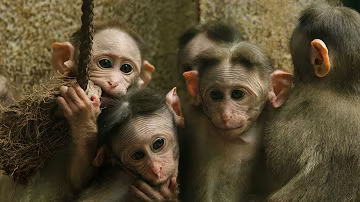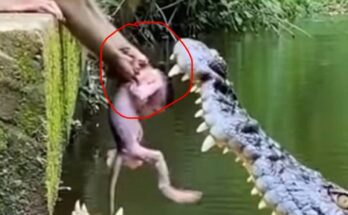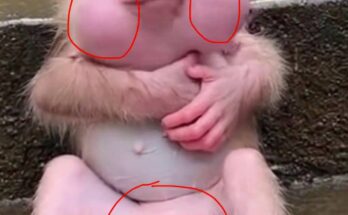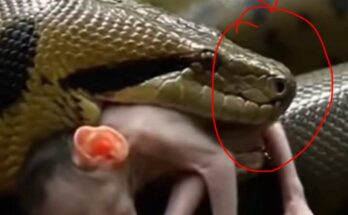
Most orphaned monkeys are taken to wildlife rescue centers or sanctuaries designed specifically to care for young primates. These places provide food, shelter, medical care, and most importantly—emotional support. Baby monkeys, like human infants, rely heavily on touch, warmth, and affection. Caregivers often act as surrogate mothers, feeding them with bottles, carrying them in slings, and even sleeping beside them during the early, fearful nights.
At these sanctuaries, the healing process begins. Some monkeys, too traumatized to eat or sleep, are given constant attention. They slowly begin to rebuild trust—first with their caregivers, then with other orphaned monkeys around them. Bonds start to form, and new social groups emerge, giving these babies a second chance to grow up in a family-like environment.
As they get older and stronger, the monkeys are gradually taught how to climb, forage, and socialize—skills they missed learning from their biological mothers. Sanctuaries with rehabilitation programs often create “forest schools,” where young monkeys are guided into safe, semi-wild areas to practice being wild again.
Some orphaned monkeys who fully recover and develop the necessary survival skills may eventually be released back into the wild, into protected areas where they can live freely. But not all are ready or suitable for release—some remain in sanctuary care for life due to health issues or extreme dependence on humans. These monkeys become part of larger sanctuary families and are given lives full of enrichment, safety, and social interaction.
It’s important to note that while sanctuaries do incredible work, the growing number of orphaned monkeys is a sign of larger problems—habitat destruction, illegal wildlife trade, and human-wildlife conflict. Every rescued monkey tells a story of loss, but also of resilience and the power of kindness.
So where do all the orphaned monkeys go? They go to places of hope. Places where gentle hands replace those they lost, where soft voices ease their fear, and where they are given the chance to play, bond, and one day, maybe return to the trees they were born to call home.


